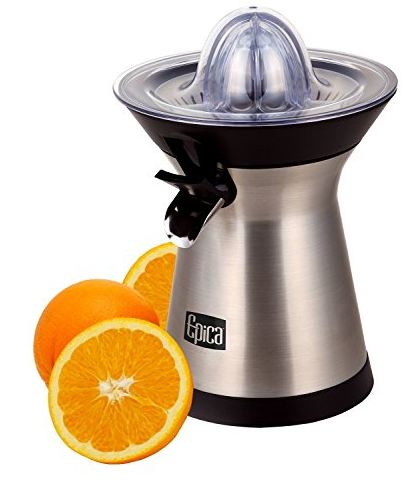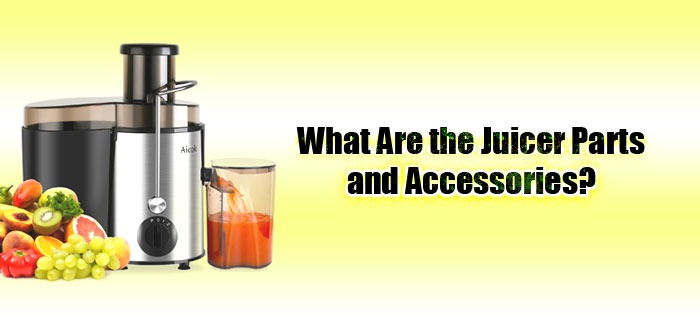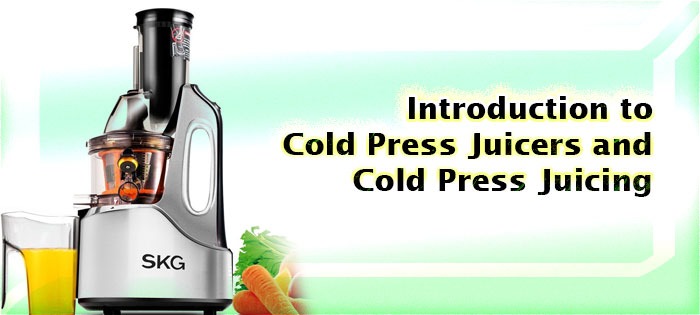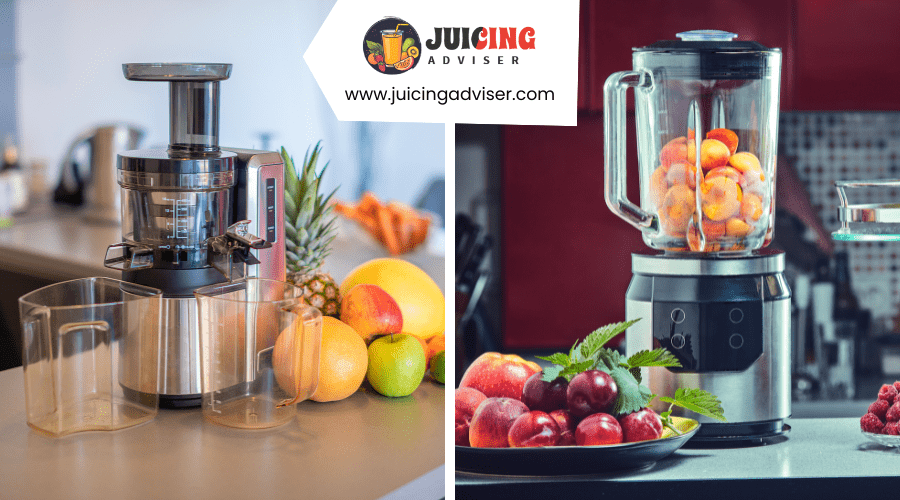What Is a Commercial Juicer Used For?
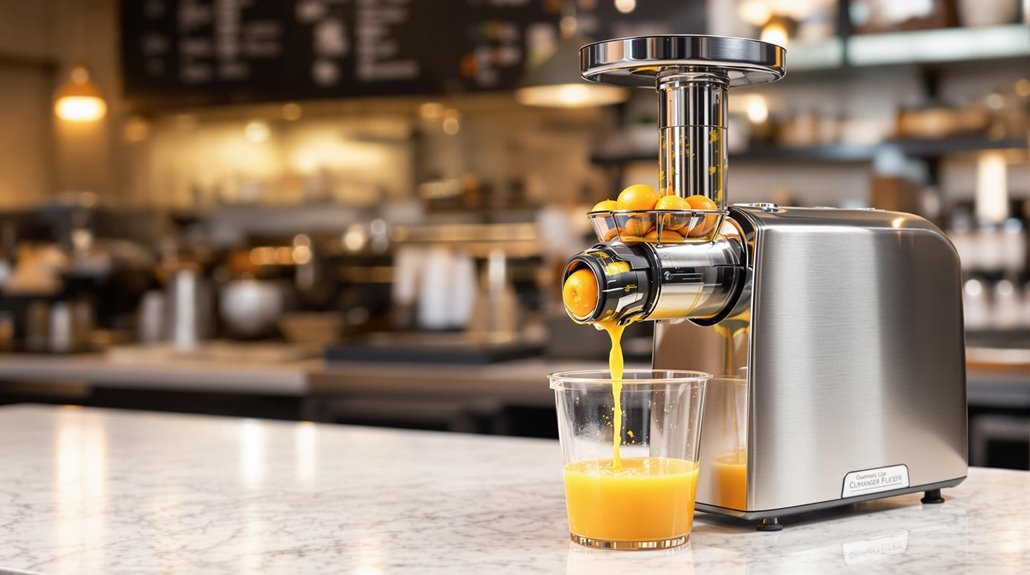
A commercial juicer is your heavy-duty solution for producing large quantities of fresh juice in a business setting. You'll find these powerful machines in juice bars, restaurants, and health food stores, where they can process up to 100 kg of produce per hour. They're built with durable stainless steel components, extra-large feed chutes, and powerful motors that handle everything from whole fruits to leafy greens. Understanding the different types and features will help you maximize your juice business's potential.
Common Types of Commercial Juicers and Their Applications
Commercial juicers come in several distinct varieties, each engineered for specific juicing needs in professional settings. If you're running a high-volume juice bar or supermarket, you'll find centrifugal juicers most effective. These commercial juice extractors handle whole fruits at high speeds, making them perfect for quick service and busy environments.
For health food stores and specialty juice bars, masticating juicers offer a quieter, slower approach that preserves more nutrients. You'll get excellent results when juicing delicate items like wheatgrass and leafy greens.
Both types of commercial juicers feature large feeding chutes and are built for durability, letting you maintain consistent production throughout the day. They're designed with easy-clean components to help you maintain sanitary conditions while meeting the demands of continuous operation in foodservice environments. The horizontal auger design in masticating juicers provides optimal extraction efficiency for leafy greens due to its narrow screen diameter.
Key Features That Define Commercial-Grade Juicing Equipment
When selecting professional-grade juicing equipment, you'll find several distinctive features that set these machines apart from standard household models. Commercial juicers are built with sturdy stainless steel and aluminum alloy components that guarantee longevity under heavy use. You'll notice their powerful motors can process up to 100 kg of produce hourly, making them ideal for high-volume operations.
These machines come with extra-large feed chutes and versatile capabilities to handle various fruit and vegetable types, from soft citrus to tough root vegetables. You'll appreciate their emphasis on safety features, including secure locking mechanisms and stable bases that prevent accidents during busy service periods.
The equipment's design prioritizes swift cleaning and maintenance, allowing you to maintain efficient operations while meeting strict hygiene standards in commercial settings. Similar to masticating juicer technology, commercial units excel at processing leafy greens and wheatgrass while maintaining optimal nutrient retention.
The Business Benefits of Professional Juicing Machines
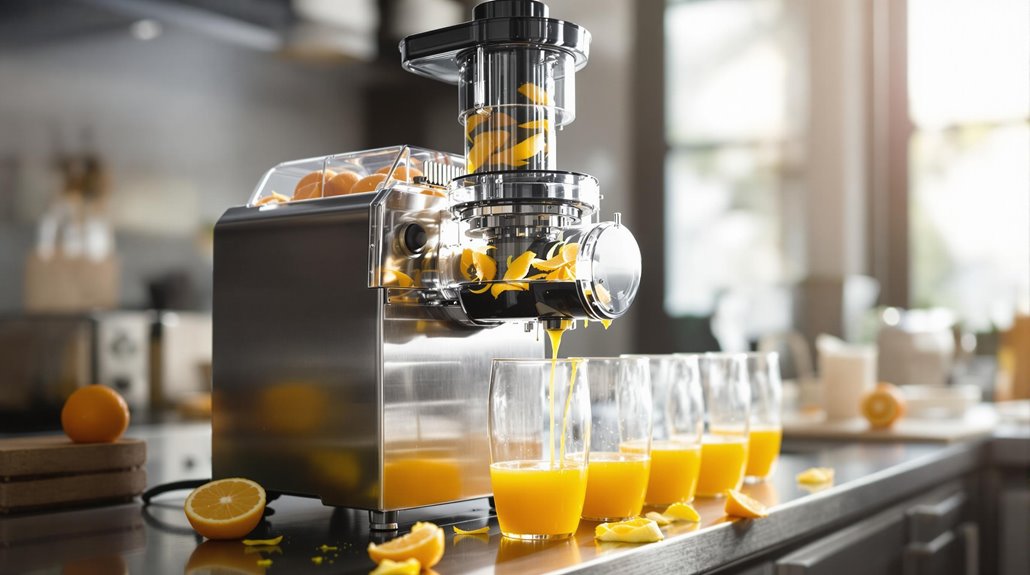
Building on these sturdy features, professional juicing machines offer substantial advantages for business owners in the food service industry. When you use a commercial juicer, you'll enhance your operational efficiency with higher juice yields and faster production times compared to manual methods. These powerful machines can run continuously during peak hours, ensuring you'll meet customer demand without interruption.
You'll appreciate how versatile commercial juicers handle various fruits and vegetables, enabling you to create diverse juice menus that attract health-conscious customers. The durable construction means less downtime for maintenance, while easy-to-clean designs help you maintain strict food safety standards. By investing in professional juicing equipment, you'll maximize your profitability through reduced waste, increased productivity, and the ability to serve fresh, high-quality beverages consistently throughout your business day. Operating at speeds between 10,000 to 25,000 RPM, commercial centrifugal juicers are particularly effective for quickly processing hard fruits and vegetables during busy service periods.
Best Practices for Commercial Juicer Operation
To maximize your commercial juicer's performance and longevity, you'll need to follow established operational best practices. Start by familiarizing yourself with your manufacturer's guidelines, as they're essential for safe and efficient operation.
Your commercial juicer is an excellent choice for high-volume production, capable of processing whole fruits and vegetable pieces through its large chute. Take advantage of the stainless steel and aluminum alloy construction by maintaining a strict cleaning schedule. While many components are dishwasher safe, you should always verify this in your user manual.
Remember to clean your juicer thoroughly between uses, focusing on all removable parts and contact surfaces. This not only guarantees food safety but also maintains consistent juice quality and extends your machine's lifespan. Regular maintenance checks will help prevent unexpected breakdowns during peak service hours.
Maintaining and Cleaning Your Commercial Juicer
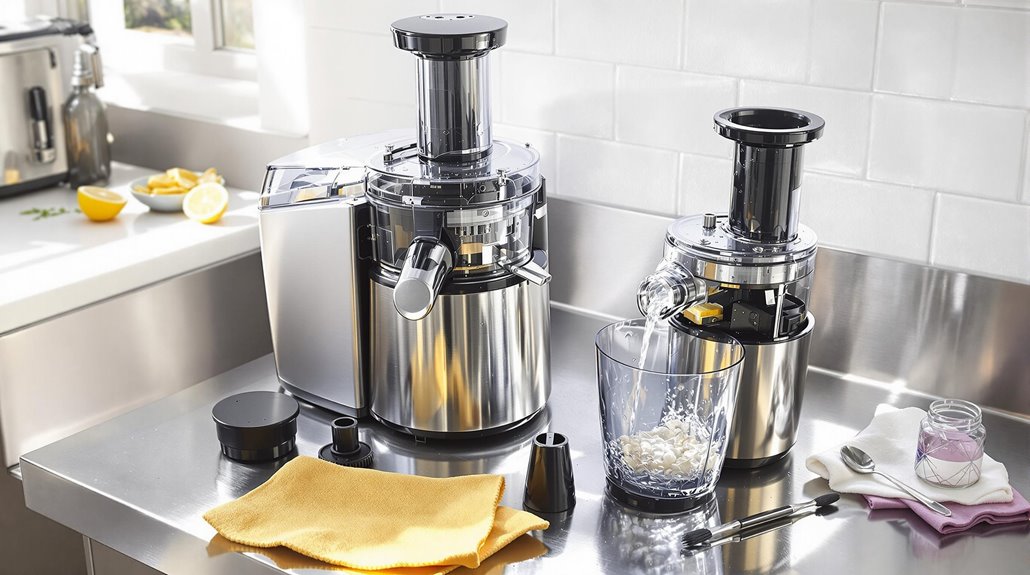
Proper maintenance and cleaning of your commercial juicer directly impacts its performance, longevity, and food safety standards. To maintain ideal juice extraction, you'll need to disassemble and thoroughly clean your citrus juicer after each use.
When it's time to clean, you can place stainless steel components in the dishwasher, but hand-wash rubber seals and non-metal parts. Use brushes and food-safe degreasers to remove dried pulp and residue from juicing surfaces.
Don't forget to lubricate the gears and bearings regularly to keep your machine running smoothly. Following these maintenance procedures guarantees your juicer will continue to extract juice efficiently while meeting food safety requirements.
The more diligently you use and clean your commercial juicer, the better quality juice it'll produce for your customers.
Choosing the Right Commercial Juicer for Your Business
Selecting the right commercial juicer can make or break your juice-based business venture. When choosing the best juicer for your operation, you'll need to examine several key factors that directly impact your ability to produce quality juice from fruits and vegetables efficiently.
First, evaluate your daily production needs and choose a machine with appropriate capacity and motor power. If you're running a busy juice bar, you'll want a high-powered centrifugal or twin gear juicer that can handle constant use.
For citrus-focused businesses, a dedicated citrus juicer might be your best option. Contemplate the types of vegetable juice and fruit combinations you'll offer, as different juicers excel at processing specific produce. Don't forget to factor in cleaning requirements and ease of use, as these aspects profoundly affect your daily operations.

